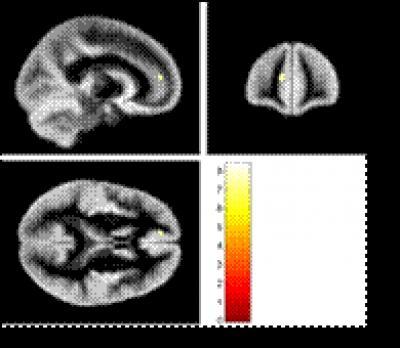In multiple sclerosis, gray matter atrophy is extensive, and cognitive deficits and mood disorders are frequently encountered. It has been conjectured that focal atrophy is associated with emotional decline. However, conventional MRI has revealed that the pathological characteristics cannot fully account for the mood disorders. Dr. Aiyu Lin and colleagues from the First Affiliated Hospital of Fujian Medical University used the voxel-based morphometry method to compare the difference in the clinical manifestations and imaging parameters of Chinese patients with multiple sclerosis and healthy controls. Furthermore, our study is the first to apply the Repeatable Battery for the Assessment of Neuropsychological Status scale in Chinese patients with relapsing-remitting multiple sclerosis to evaluate cognitive function. The researchers suggest that gray matter atrophy exists in relapsing-remitting multiple sclerosis, and the cingulate and frontal cortices of the dominant hemisphere are the most severely atrophic regions of the brain. Additionally, this atrophy is correlated with cognitive decline and emotional abnormalities. These findings are published in the Neural Regeneration Research (Vol. 8, No. 21, 2013).

Voxel-based morphometric analysis showed that the volume of the gray matter in the cingulate of the dominant hemisphere in relapsing-remitting multiple sclerosis patients was significantly reduced.
(Photo Credit: Neural Regeneration Research)
Source: Neural Regeneration Research